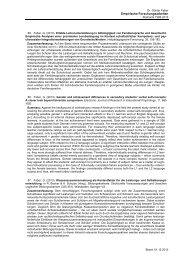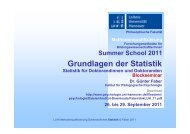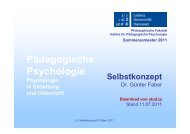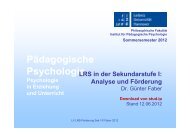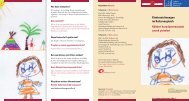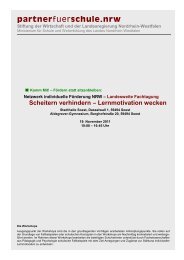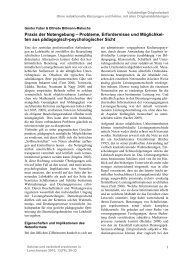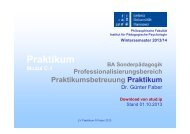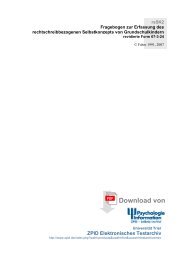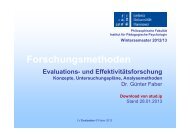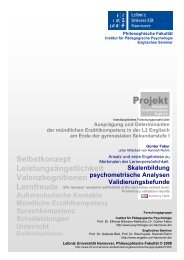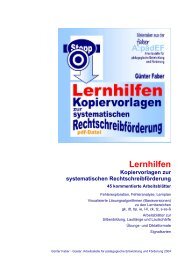Selbstkonzept, Kausalattributionen und Leistungsangst - Institut für ...
Selbstkonzept, Kausalattributionen und Leistungsangst - Institut für ...
Selbstkonzept, Kausalattributionen und Leistungsangst - Institut für ...
Erfolgreiche ePaper selbst erstellen
Machen Sie aus Ihren PDF Publikationen ein blätterbares Flipbook mit unserer einzigartigen Google optimierten e-Paper Software.
Zusammenfassung <strong>und</strong> Abstract<br />
by spelling-specific self-concept. In a similar manner, the test anxiety scores are fo<strong>und</strong> to<br />
be substantially related to general self-esteem and to school-related attitudes. Further multivariate<br />
analyses can also show that teacher ratings do not sufficiently match their students’<br />
self-reported anxiety scores – rather they seem to be substantially biased by knowledge<br />
about students’ current spelling achievement. With respect to the failure and success attributions<br />
there are significant acievement-dependent differences, which are, in turn, partly affected<br />
by the self-concept variable. Low-achieving students with a negative self-concept<br />
make causal attributions which demonstrate a stronger perception of uncontrollability and<br />
helplessness in the spelling domain. And finally, the results of a structural equation modeling<br />
analysis indicate the achievement variable (at the beginning of the school year) to be<br />
causally predominant on the self-concept variable (at the end of the school year). In conclusion,<br />
implications resulting from these findings for future research efforts and their preliminary<br />
significance for spelling instruction in educational settings will be discussed.<br />
Key Words: Spelling achievement, academic self-beliefs, self-concept, causal attributions,<br />
test anxiety



